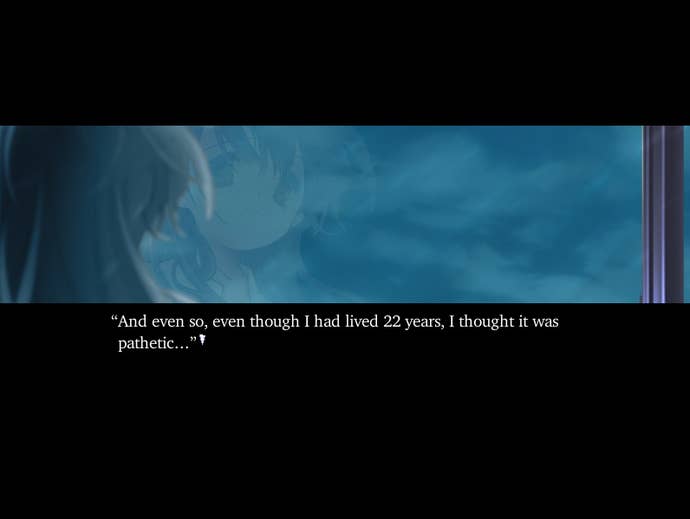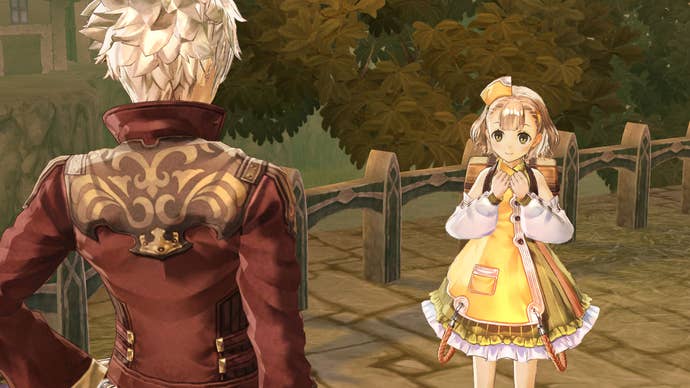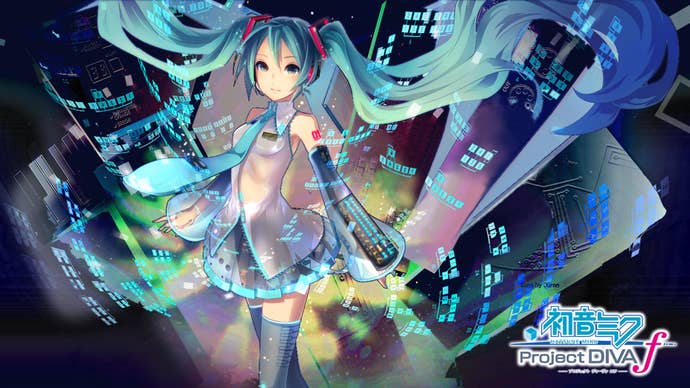JPgamer: I've Poured Too Many Tears
In this week's roundup of all things Japanese gaming, we take a look at Narcissu, a free indie visual novel hoping to get on Steam, plus Idea Factory International's site launches, there's an Atelier anime on the way, and Sega has a pleasing announcement for Hatsune Miku fans.
This article first appeared on USgamer, a partner publication of VG247. Some content, such as this article, has been migrated to VG247 for posterity after USgamer's closure - but it has not been edited or further vetted by the VG247 team.
Welcome, once again, to USgamer's regular roundup of all things Japan and Japan-inspired.
This week, as a follow-up to our discussion of visual novels a couple of weeks back, I wanted to draw your attention to a title currently battling its way through Steam's Greenlight program that may be of interest to visual novel fans -- particularly those who enjoy what is colloquially referred to around the Internet as "the feels."
You may not have heard of Narcissu -- I hadn't before the other day -- but it's worth a look. It's an experimental visual novel originally developed by Japanese doujin circle stage-nana and written in Japanese by Tomo Kataoka. It was subsequently translated into a variety of different languages, including English, Russian, Chinese, French, Korean and Vietnamese by fan translators; however, unlike many of the other fan translation projects on the Internet, these translations were carried out with the full knowledge and authorization of the original author and development team. It's enjoyed over a million downloads to date, and proved popular enough in Asia to spawn light novel and manga adaptations.
Narcissu is split into two distinct components. The first follows the story of the unnamed, terminally ill protagonist, who meets a girl named Setsumi at the hospice where he is living out his final days. Setsumi is also nearing the end of her life and their relationship brings them to the conclusion that they don't want to die in the hospital; instead, they set out on a journey together to be with those that they love. The second part, meanwhile, acts as a prequel and focuses on Setsumi's life before she knew her condition was terminal. She meets Himeko, a resident of the hospice, and they enjoy a summer adventure together. Thematically, it sounds very much like it fits into the "utsuge" ("depressing game") genre that also includes classics of the visual novel medium such as Kana Little Sister, so be prepared, as one Greenlight commenter put it, to "pour too many tears" into the game.
The game is presented somewhat unconventionally for the medium; rather than the full-screen visuals and huge character sprites normally seen in games of this type, Narcissu displays its images as a very narrow band in the middle of the screen, accompanied by either voiced or unvoiced narration text; in the case of the English translation, different people worked on the two versions so as to provide different perspectives on the narrative, which is an interesting approach. The game draws heavy inspiration from both road trip movies and writer Kataoka's previous work Gin'iro, a commercial work that, despite its medieval Japan setting, shares some themes and ideas.
The version currently on Steam Greenlight is being handled by Sekai Project, a group that specializes in crowdfunding for Japanese doujin works. The original developers at stage-nana have specifically requested that should the game successfully make it on to Steam, it should be released as a free title -- Sekai Project intends to respect these wishes, releasing it for free "or at least as free as Steam will let us," apparently.

For those who already know the project well, the Steam release will be the higher-quality version with updated visuals and audio from the Japanese CD version rather than the lower-quality Web-based version that was originally released. It will also feature new translations to English from the original teams as well as the original Japanese script; it will not, however, feature support for any of the other languages -- at least not initially.
Want to know more? Check out the Greenlight page and show your support; now that Dysfunctional Systems has made it on to Steam, it's entirely possible that we'll start seeing more visual novels on the platform from now on -- no bad thing at all.
Idea Factory International Opens its Doors
Idea Factory International has finally lifted the veil of mystery and launched its official website. As previously suggested, the new site provides information on games developed by Idea Factory and its subsidiaries such as Compile Heart and Otomate. Despite it being a Western-facing resource, it also provides information on games that have not yet been confirmed for Western release, such as Compile Heart's Vita-based reboot of the first Hyperdimension Neptunia game, Hyperdimension Neptunia Re;Birth.

At present, the site appears to be exactly what it promised initially: a resource that collects together news and information for fans of Idea Factory's titles, regardless of the teams who localized or published them in other territories. The front page's news feed, for example, includes news of Ghostlight's release of DLC for the PC version of Agarest, Aksys' announcement of otome visual novel Hakuoki: Stories of the Shinsengumi and NIS America's recent licensing of idol game Hyperdimension Neptunia PP and Mugen Souls Z. It also separates out news from Japan and Western markets, so those who are interested in importing and playing Japanese Idea Factory titles can stay up to date with the latest news easily, too.
There's also an English language forum for chatting with fellow Idea Factory fans, and if you follow the company on Facebook or Twitter you could be in with a chance to win all sorts of goodies, including games, console and controller skins, iPhone cases and even a giant Neptunia pillow.
Atelier Escha & Logy Getting an Anime Adaptation
Atelier and Ar Tonelico developer Gust is 20 years old -- happy birthday! -- and is celebrating with, among other things, the announcement that the latest Atelier game is getting an anime adaptation, Siliconera reports.
Atelier Escha & Logy released in Japan earlier this year, and is coming to the West early next year. It's the second installment in the "Dusk" subseries that began with Atelier Ayesha -- it unfolds four years after the start of that game -- and the fifteenth Atelier game overall. The game combines two distinct types of play according to which of the two protagonists you choose: Escha's campaign focuses on item crafting and assignments as in the most recent installments, while Logy's is more focused on exploration, though the two campaigns share story content and overlap.

The anime adaptation is the work of Studio Gokumi, a team made up of former members of Gonzo who have previously worked on series including The Severing Crime Edge (Dansai Bunri no Crime Edge), Kin-iro Mosaic and Saki. It's set to launch in Japan in 2014.
Project Diva f Coming West
Whew, almost missed this one before publishing today; Sega has announced that, following Hatsune Miku Project Diva capital-F's positive reception from PlayStation 3-toting fans in the West, Hatsune Miku Project Diva lower-case-italic-f for PlayStation Vita will be released in North America and Europe as a digital download title. Expect it in early 2014, apparently.

Project Diva lower-case-italic-f is fundamentally the same game as the PlayStation 3 version, with a few additional features such as touch controls added in appropriate places -- you can "scratch" the star notes by flicking on the Vita's touchscreen rather than using the analog sticks, for example. Its arcadey rhythm action gameplay is ideal for taking on the go, so Vita-owning Miku fans will want to keep an eye out for this one when it launches early next year.
That's your lot for this week, then. Are you going to support Narcissu's Greenlight campaign and help more visual novels make their way on to Steam? Let's hear what you think in the comments and notes. In the meantime, we'll be back at the same time next week with more news and thoughts on all things Japan. Mata ne!

